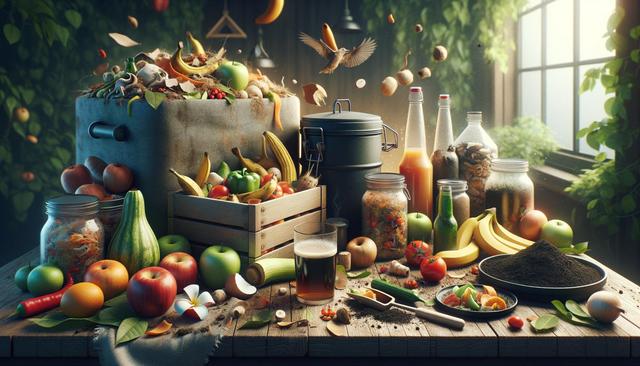Understanding Browns and Greens
The concept of browns and greens is fundamental in composting. Browns refer to carbon-rich materials that provide energy for the microorganisms breaking down the compost. These include items like dead leaves, branches, and cardboard. On the other hand, greens are nitrogen-rich and include materials like grass clippings, vegetable scraps, and coffee grounds. For an effective compost pile, it’s essential to maintain a balanced ratio of these two components. A common recommendation is a 3:1 ratio of browns to greens.
Different Types of Composting Methods
Various composting methods can cater to different needs and spaces. From traditional backyard piles to modern kitchen composters, the options are plentiful. A compost tumbler is an excellent choice for those who want to speed up the process with minimal effort. For those living in apartments, a countertop composter or a lomi composter might be more suitable. Another innovative method is bokashi, which ferments kitchen waste, making it perfect for urban settings. Exploring these options can help you find the best fit for your lifestyle and space.
Finding Compost Near You
Looking for compost near you can be as simple as doing a quick search for ‘compost for sale’ or ‘compost near me.’ Many garden centers and local farms offer high-quality compost at various price points. It’s important to consider the compost cost and compost price, as these can vary significantly based on quality and quantity. Additionally, some municipalities offer free or discounted compost to residents, which can be a budget-friendly option.
Balancing Compost Ingredients
A well-balanced compost pile is crucial for effective decomposition. Too much green material can lead to a smelly pile, while excess browns may slow down the process. To maintain the right balance, consider a simple checklist:
- Alternate layers of greens and browns.
- Keep the pile moist, but not waterlogged.
- Turn the pile regularly to aerate it.
These steps will ensure your composting efforts result in rich, crumbly compost for your garden.
Benefits of Composting
Composting offers numerous benefits beyond just enriching your garden soil. It reduces the amount of waste sent to landfills, decreasing your environmental footprint. Moreover, it allows you to recycle kitchen and garden waste into valuable nutrients. Whether using a kitchen composter or a larger setup, the positive impacts on your garden and the environment are profound. As you continue your composting journey, you’ll likely find it a rewarding and sustainable practice.
Conclusion
Composting is an accessible and beneficial practice for anyone looking to enhance their garden and reduce waste. By understanding the browns and greens balance and exploring different composting methods, you can find a solution that fits your needs. Whether you’re purchasing compost or creating your own, the rewards include healthier plants and a more sustainable lifestyle. Begin your composting adventure today, and enjoy the benefits for years to come.
